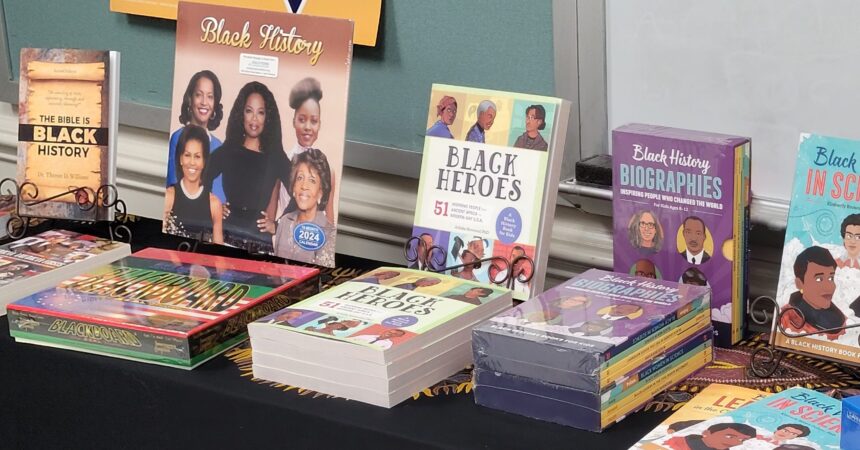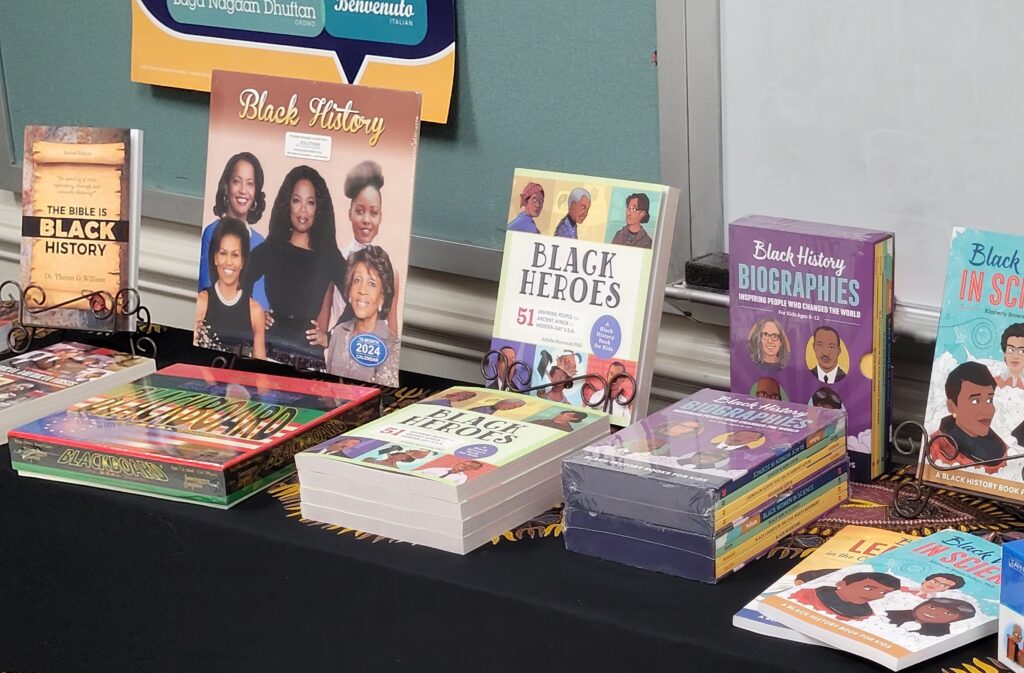
Listening session focuses on book ban

Photo by St. Clair Murraine
By St. Clair Murraine
Outlook Staff Writer
For awhile it seemed that journalism professor Valerie White might have opened a can of worms when she asked a group of mostly college students for ideas on ways to teach Black history.
It was billed as a listening session and that’s what White did as some in the audience let their feelings known. In a nutshell, their attitude was as if they were asking who gave Gov. Ron DeSantis and the Florida Legislature authority to take the strikes that they have against Black history.
White was host of the listening session at BL Perry Library last Thursday night. It is part of the community engagement requirement that came with a grant she received from Solutions Journalism.
From the governor’s stance on critical race theory to his refusal to accept the College Board’s Advance Placement courses, the students were vocal on every point. The banning of books related to African American history was especially troubling to the students.
In response Ja’Caiya Stephens suggested that families teach their children Black history at home. That might be challenging, though, because of the influences that young people face, said Freddie Hall.
Another student was concerned at the suggestion that parents might have to sign permission slips for their children to read certain books, as is being practiced in some states.
“Reading is the choice of our freedom and a child should have a fair choice to read,” said Shontae Day, a journalism student at FAMU. “They shouldn’t have to sign a consent form like they’re going on a field trip.”
Young people’s rapid reliance on the internet was a concern raised by Ja’Caiya Stephens, a fourth year student at FAMU.
Students should use “their minds and (do) hands-on things,” Stephens said.
White prefaced her talk by mentioning the Teach Our History Task Force. It is a panel of 12 African American teachers, historians, and authors that was brought together by Rev. RB Holmes to come up with a curriculum specific to teaching Black students.
White was, however, concerned whether the students who showed up would be proactive.
“They had some good ideas but I just hope it becomes action,” she said. “I see there is some complacency and there seems to be a reluctance to initiate anything as far as the bigger picture. But I hope this will be a start.”
With the alternatives to reading that young people have, Kim Williams reminded the audience that the substance of knowing isn’t in seeing a story on television or the big screen. There is no substitute for reading, she said, holding up three books in her hand.
“It’s very important that you use your own brain and let you brain percolate to figure out what’s going on,” she said.
How a particular story is interpreted is up to the individual, she said, referring to Sunny Hostin’s Summer on the Sag Harbor.
“I’m seeing it the way I would see it; not the way some other person would see it,” she said. “When that other person put it on the screen it might kind of distort what I might have seen in it. That’s why it’s always best to read the book first before going to see the movie.”







